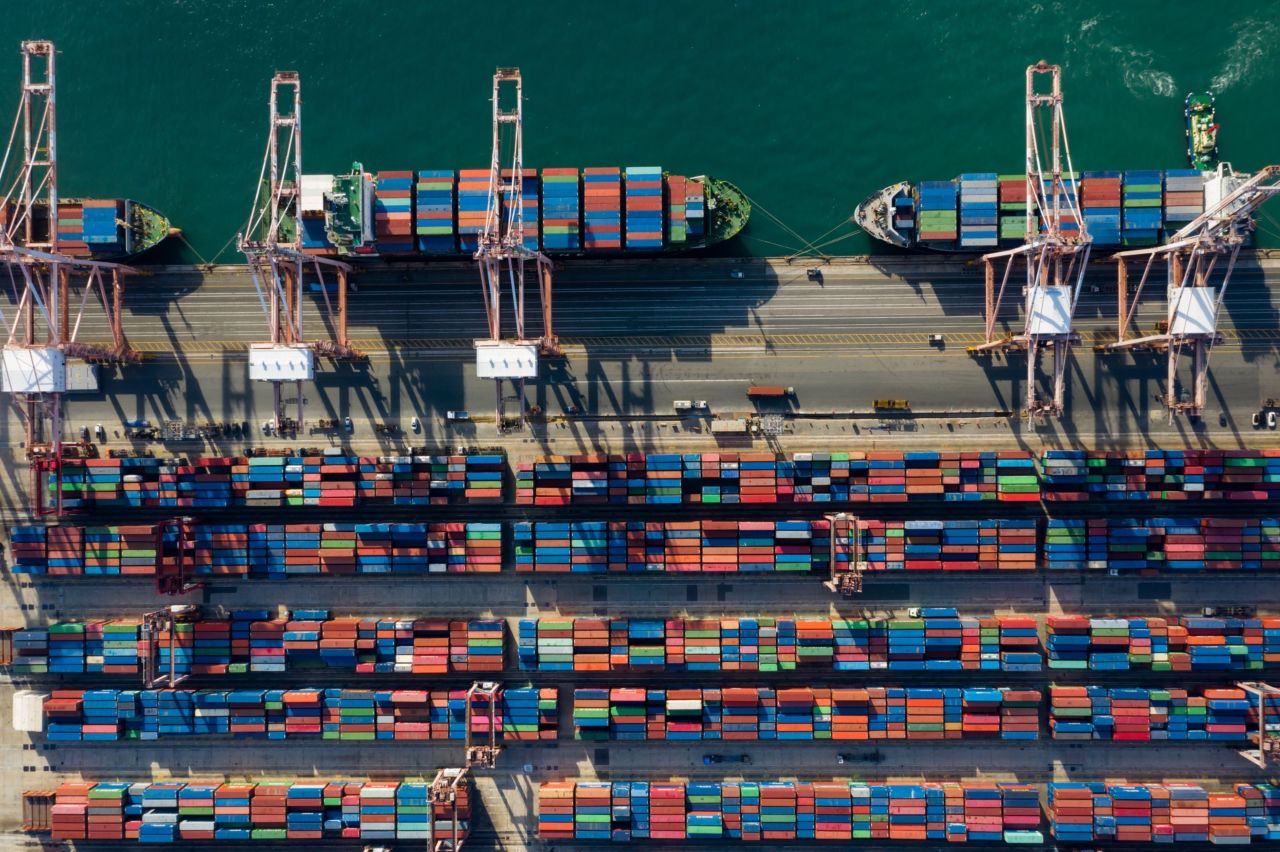
South Korea and the US have seen their trade volume surge almost 70 percent since a free trade pact was signed in 2011, with their economic ties being enhanced as a key partnership to resolve the current supply chain disruptions.
According to a report released Friday by the Korea International Trade Association that marks the 10th anniversary of the Korea-US Free Trade Agreement, trade volume between the two countries soared 67.8 percent to $169.1 billion last year from $100.8 billion in 2011.
Trade volume with the US now makes up 13.4 percent of Korea’s total trade volume, up 9.3 percent from a decade ago. The US has become the nation’s second-largest trading partner after China.
Cars, automotive parts, petroleum products, batteries, refrigerators and polymers drove up the surge overall.
Korea’s trade surplus with the US almost doubled to $22.7 billion last year from $11.6 billion before the trade deal.
During the Donald Trump administration, the US raised questions about the trade imbalance in an attempt to revise deal conditions. But the report said the imbalance is more related to the complementary industrial structures of the two nations.
While Korea sees a surplus in goods, the US has strength in services. When it comes to key Korean export items like chips and petroleum products, most of the equipment and raw materials are secured in the US.
Both countries have also invested heavily in each other. The US is the No. 1 destination of Korea’s foreign direct investments, making up 25.2 percent of the total. Korea also attracts the largest 22.3 percent of its foreign direct investments from the US.
More recently, Korea has increased investments in the US, especially in the fields of batteries, semiconductors and electric vehicles, building production facilities and creating jobs there.
The bolstered economic ties have also strengthened their alliance in reshaping the global supply chain, with the escalating rivalry between the US and China and the COVID-19 pandemic fueling supply chain disruptions.
“Given the US is seeking to expand the Indo-Pacific Economic Framework together with its allies, discussions should continue on how to develop the bilateral FTA in the context of broader regional economic and security dynamics,” said Lee Yoo-jin, chief researcher at KITA.
The report urged Korea’s responsiveness to emerging trade issues like the transition to digital, carbon neutrality and human rights that could top the agenda when nations start the application process for the Indo-Pacific Economic Framework in April.
According to a report released Friday by the Korea International Trade Association that marks the 10th anniversary of the Korea-US Free Trade Agreement, trade volume between the two countries soared 67.8 percent to $169.1 billion last year from $100.8 billion in 2011.
Trade volume with the US now makes up 13.4 percent of Korea’s total trade volume, up 9.3 percent from a decade ago. The US has become the nation’s second-largest trading partner after China.
Cars, automotive parts, petroleum products, batteries, refrigerators and polymers drove up the surge overall.
Korea’s trade surplus with the US almost doubled to $22.7 billion last year from $11.6 billion before the trade deal.
During the Donald Trump administration, the US raised questions about the trade imbalance in an attempt to revise deal conditions. But the report said the imbalance is more related to the complementary industrial structures of the two nations.
While Korea sees a surplus in goods, the US has strength in services. When it comes to key Korean export items like chips and petroleum products, most of the equipment and raw materials are secured in the US.
Both countries have also invested heavily in each other. The US is the No. 1 destination of Korea’s foreign direct investments, making up 25.2 percent of the total. Korea also attracts the largest 22.3 percent of its foreign direct investments from the US.
More recently, Korea has increased investments in the US, especially in the fields of batteries, semiconductors and electric vehicles, building production facilities and creating jobs there.
The bolstered economic ties have also strengthened their alliance in reshaping the global supply chain, with the escalating rivalry between the US and China and the COVID-19 pandemic fueling supply chain disruptions.
“Given the US is seeking to expand the Indo-Pacific Economic Framework together with its allies, discussions should continue on how to develop the bilateral FTA in the context of broader regional economic and security dynamics,” said Lee Yoo-jin, chief researcher at KITA.
The report urged Korea’s responsiveness to emerging trade issues like the transition to digital, carbon neutrality and human rights that could top the agenda when nations start the application process for the Indo-Pacific Economic Framework in April.



















![[Today’s K-pop] Treasure to publish magazine for debut anniversary](http://res.heraldm.com/phpwas/restmb_idxmake.php?idx=642&simg=/content/image/2024/07/26/20240726050551_0.jpg&u=)